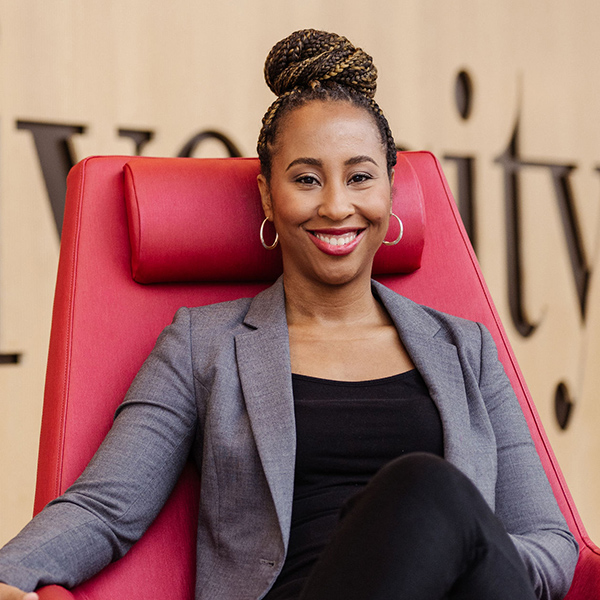
How to Combat Imposter Syndrome
By Britnai Nunley, Accelerate Leadership Coach, Tepper School of Business
Maybe you’ve heard of imposter syndrome — that feeling that you’re a fraud, not really qualified for the job or academic opportunity you’ve taken on. It’s common; 70 percent of people have felt this way at some time.
But for some of us, imposter syndrome is compounded by actual feedback that seems to confirm our fears. For women, people of color, and other underrepresented minorities, microaggressions, and questions about whether you belong can be very real.
In a prestigious MBA program, you may get questions that others don’t — what was your GMAT score, where did you go for undergrad. What you’re really being asked is how did you get into this program. At work, you might be second-guessed on your decisions in ways that your white male colleagues are not. These subtle but aggressive attacks can reinforce any doubts you already have.
On top of that, you might also be dealing with something called stereotype threat — the worry that you’ll confirm negative stereotypes about your racial, ethnic, gender, or cultural group. Stereotype threat can cause heightened feelings of self-doubt and anxiety, and ultimately impact a person's ability to perform. It can cause someone to withdraw, second-guess themselves, and be overly self-conscious.
Four Strategies for Overcoming Imposter Syndrome
Staying confident in the face of all this can be a challenge. In their book Own Your Greatness, psychologists Lisa Orbé-Austin and Richard Orbé-Austin offer strategies to counter your self-doubts and confirm your qualifications.
- Build a community of support. Key relationships will support your well-being and reassure you that you are capable. A mentor can give you advice and perspective, a coach will help you set goals, a cheerleader offers unconditional support, and a grounder can do a reality check. Think about who fills these roles for you and then check in with them as needed.
- Own your accomplishments. This is important because it fights fear with facts. Recognize your accomplishments, large and small — and make a list of them, including personal and professional deeds. Post work achievements on LinkedIn. When you doubt yourself, review your lists.
- Self-care is critical. When you feel unsure, it’s easy to overwork and burn out trying to prove yourself. Value your well-being by assessing your physical, personal, and professional needs. Create a care plan that’s just for you. Start small, adding things into your routine to keep you mentally and physically healthy.
- Speak up — and calm your inner voice. Speak your fears. Suffering in silence can strengthen these feelings. Tell a trusted friend or family member about your doubts. Let them support you. Commit to speaking to them when you feel unsure. You’ll find you aren’t alone. Also, address your negative self-talk. Notice the negative thought, look for evidence against it, and replace it with a more helpful, truthful thought. Instead of saying to yourself "I'm never going to get that promotion," say "My skills and experience make me worthy of being considered for this promotion.”
Confidence Might Be Overrated
Some of us will never feel completely confident — it’s just not our nature. Instead of looking for confidence, seek courage. Courage lets you forge ahead despite your fears. When you succeed, your confidence will increase.
Follow the Evidence
When someone compliments your work, don’t dismiss their words — say thank you and file it away (even write it down) to refer to the next time you doubt your capabilities.
With a bit of intentionality and attention, you’ll amass an arsenal of evidence and supporters to combat imposter syndrome and remind you that you’re a talented and competent contributor wherever you may find yourself.
Britnai Nunley is an Accelerate Leadership Coach at the Tepper School of Business at Carnegie Mellon University. After pivoting from a career in law to one in leadership development, she’s worked in multiple sectors, including business, government, and nonprofit. Through executive coaching, immersive engagement activities, and learning and development programs, she helps individuals develop the skills to be agile, effective, and inclusive leaders. Nunley holds a J.D. from Wake Forest University School of Law and an Associate Certified Coach credential from the International Coaching Federation.

